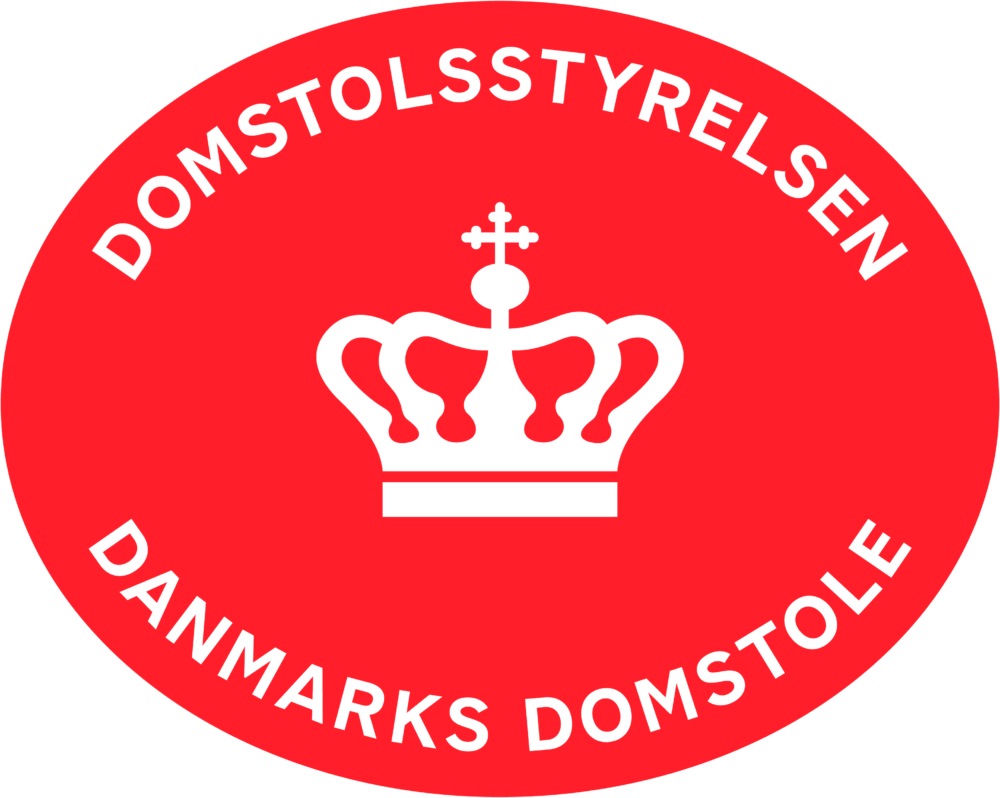Court Administration
The Danish Court Administration was founded in 1999 to ensure more organisational independence and autonomy of the judiciary. The Danish Court Administration is therefore an independent state unit headed by a board of governors and a director.
The Danish Court Administration is a part of the Danish Courts, that besides the Danish Court Administration consists of The Supreme Court, Two High Courts, the Maritime and Commercial Court, the Land Registration Court, 24 district courts, the courts of the Faroe Islands and Greenland, the Appeals Permission Board, the Special Court of Indictment and Revision, the Danish Judicial Appointments Council, External Activities Reviews Board, the Juvenile Delinquency Board, and the Danish Court Administration.
The Danish Court Administration, internally, is structured to support and develop the courts through guidance, counselling, and dialogue. The Danish Court Administration is responsible for the administrative, budgetary, and developmental affairs of the courts. The administration is divided in different areas of expertise to accomplish the objectives of the Danish Courts. As the country’s formal member of the European Judicial Training Network, it represents and coordinates the participation of the Danish Courts.
The Danish Court Administration is responsible for the training of all personnel at the Courts in Denmark. The Court Administration offers on an average about 150 different training courses annually for the judiciary. The training focus is in developing both professional and personal competencies. Development of the professional competencies directly support the work tasks in the employees’ everyday life and thus ensure that the Danish Courts continue to deliver the highest quality in task solving.
The provision of competence development at Denmark’s courts can be divided into the following three categories: annual tenders, supplementary strategic tenders, local tenders at the courts. In the event of new legislation and other societal developments, both national and international, the Danish Court Administration continuously evaluate the need and the demand for courses in collaboration with the courts.
The judicial training is important for the Danish Courts, and there is a great and continuous focus on education, development, and progress.
Contact
Court Administration
-
Amagerfælledvej 56
2300 København S - international@domstolsstyrelsen.dk
- https://domstol.dk/om-os/english/

-
Austria
- Federal Ministry of Justice
-
Belgium
- Judicial Training Institute
-
Bulgaria
- National Institute of Justice
-
Croatia
- Judicial Academy
-
Cyprus
- Judicial Training School
-
Czechia
- Judicial Academy
-
Denmark
- Court Administration
-
Estonia
- Office of the Prosecutor General
- Supreme Court
-
Finland
- National Courts Administration
- National Prosecution Authority
-
France
- National School for the Judiciary
-
Germany
- Federal Ministry of Justice and Consumer Protection
- Academy of European Law (ERA)
-
Greece
- National School of the Judiciary
-
Hungary
- National Office for the Judiciary
- Office of the Prosecutor General
-
Ireland
- The Judicial Council
-
Italy
- School for the Judiciary
- High Council of the Judiciary
-
Latvia
- Latvian Judicial Training Centre
- Office of the Prosecutor General
-
Lithuania
- National Courts Administration
- Office of the Prosecutor General
-
Luxembourg
- National Council of Justice
-
Malta
- Judicial Studies Committee
-
Netherlands
- Training and Study Centre for the Judiciary
-
Poland
- National School of Judiciary and Public Prosecution
-
Portugal
- Centre for Judicial Studies
-
Romania
- National Institute of Magistracy
-
Slovakia
- Judicial Academy
-
Slovenia
- Judicial Training Centre
-
Spain
- Centre for Legal Studies
- Judicial School
-
Sweden
- Judicial Training Academy
- Swedish Prosecution Authority
